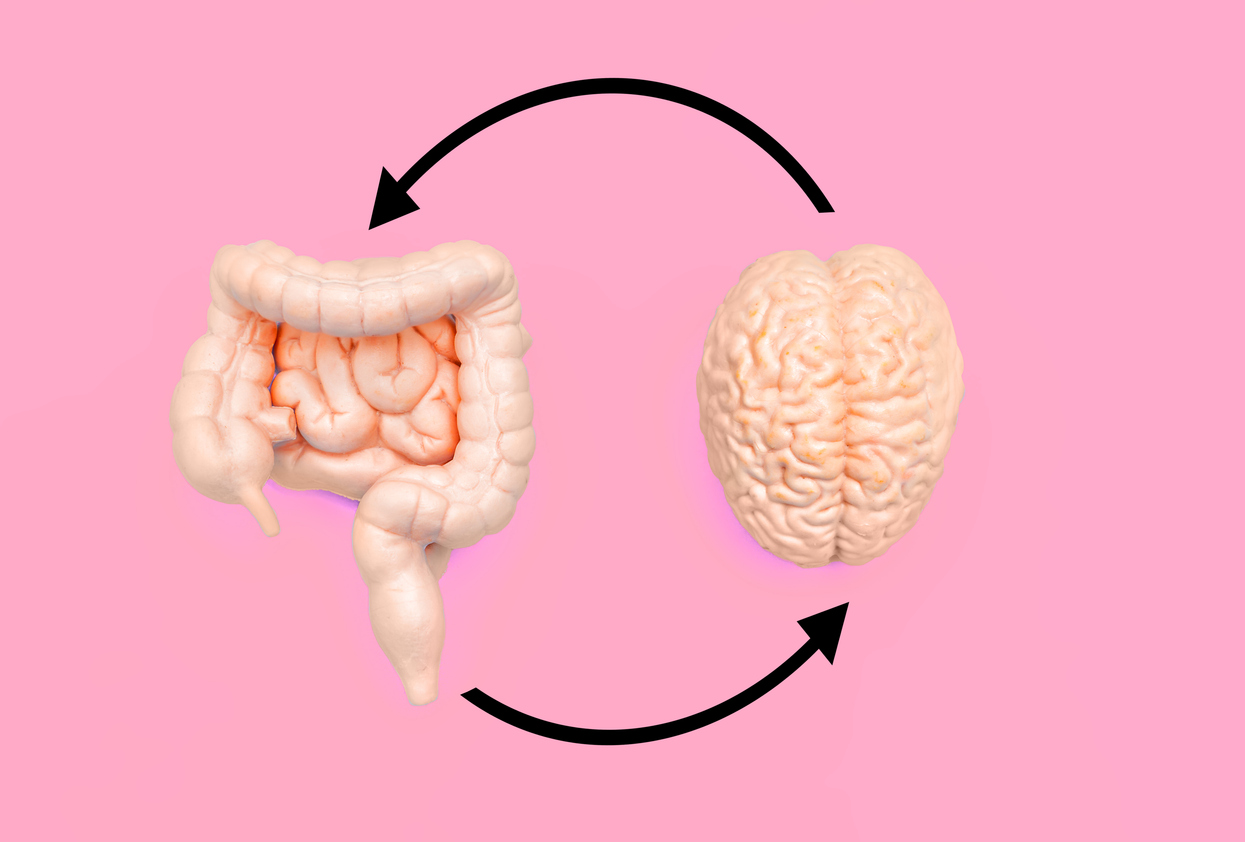2025-06-11
ADHD and the gut: an inflammatory duo?
Gastroenterology and Hepatology
#ADHD #gut #IBS #GutBrainAxis #Microbiome
Attention-deficit/hyperactivity disorder (ADHD) is a chronic neurodevelopmental disorder that begins in childhood and may persist into adulthood. Affecting up to 14% of children and nearly 7% of adults, it is associated with numerous psychiatric and medical comorbidities, including gastrointestinal disorders.
Digestive symptoms such as constipation and flatulence have been reported in patients with ADHD. However, their etiological link remains uncertain. Despite increasing attention on the role of the gut microbiome in neuropsychiatric disorders, data connecting ADHD and intestinal disorders remain limited and inconsistent. Understanding the role of the microbiota and the gut-brain axis in ADHD could therefore open new diagnostic and therapeutic avenues. Nevertheless, the diversity of studies, diagnostic criteria, and geographical regions studied complicates result interpretation.
This study was conducted to synthesize and characterize a potential association between ADHD and various intestinal disorders (notably irritable bowel syndrome, celiac disease, IBD, etc.), by evaluating relative risks in different regions of the world.
Eleven studies conducted between 2000 and 2023 were selected, including a total of 3.85 million participants, 175,806 of whom had ADHD. The studies included cohort, case-control, and cross-sectional designs, and were assessed for quality using the JBI tool.
The findings suggest a trend toward an increased risk of intestinal disorders in individuals with ADHD, although the association was not statistically significant due to high heterogeneity among studies. However, a significant relationship was observed between ADHD and irritable bowel syndrome (IBS), confirming a higher prevalence of this functional disorder in ADHD patients. No clear correlation was found for celiac disease, constipation, or chronic inflammatory bowel diseases (IBD).
Subgroup analysis by region revealed notable geographical disparities, with the Eastern Mediterranean region showing a stronger association compared to the Americas, Europe, or Western Pacific. Finally, sensitivity analysis strengthened the robustness of the ADHD-intestinal disorders link, with the association reaching statistical significance.
ADHD is a common and chronic condition with complex and multifactorial origins. Genetic factors, inflammatory mechanisms, and environmental influences play significant roles. Gastrointestinal disorders, particularly irritable bowel syndrome (IBS), are a major concern among patients with ADHD. Their presence can significantly impair quality of life and complicate treatment, especially when medications like methylphenidate are associated with digestive side effects such as abdominal pain.
This study aimed to clarify the statistical association between ADHD and various intestinal disorders and to explore the potential role of the gut microbiota as a pathogenic mediator in this association. Although the results do not establish a strong correlation between ADHD and all intestinal disorders, they do confirm a significant association with IBS. This relationship suggests the possible involvement of the gut microbiome as a central factor in the neurological and digestive dimensions of ADHD.
However, several limitations temper the interpretation of these results and underscore the need for further research. Future studies are needed to better understand the interactions between microbiota and ADHD. Exploring the therapeutic potential of microbiota-targeted interventions—such as probiotics, prebiotics, or synbiotics—represents a promising avenue for improving the overall management of patients.
Attention-deficit/hyperactivity disorder (ADHD) is a chronic neurodevelopmental disorder that begins in childhood and may persist into adulthood. Affecting up to 14% of children and nearly 7% of adults, it is associated with numerous psychiatric and medical comorbidities, including gastrointestinal disorders.
Digestive symptoms such as constipation and flatulence have been reported in patients with ADHD. However, their etiological link remains uncertain. Despite increasing attention on the role of the gut microbiome in neuropsychiatric disorders, data connecting ADHD and intestinal disorders remain limited and inconsistent. Understanding the role of the microbiota and the gut-brain axis in ADHD could therefore open new diagnostic and therapeutic avenues. Nevertheless, the diversity of studies, diagnostic criteria, and geographical regions studied complicates result interpretation.
This study was conducted to synthesize and characterize a potential association between ADHD and various intestinal disorders (notably irritable bowel syndrome, celiac disease, IBD, etc.), by evaluating relative risks in different regions of the world.
Does ADHD upset the gut?
Eleven studies conducted between 2000 and 2023 were selected, including a total of 3.85 million participants, 175,806 of whom had ADHD. The studies included cohort, case-control, and cross-sectional designs, and were assessed for quality using the JBI tool.
The findings suggest a trend toward an increased risk of intestinal disorders in individuals with ADHD, although the association was not statistically significant due to high heterogeneity among studies. However, a significant relationship was observed between ADHD and irritable bowel syndrome (IBS), confirming a higher prevalence of this functional disorder in ADHD patients. No clear correlation was found for celiac disease, constipation, or chronic inflammatory bowel diseases (IBD).
Subgroup analysis by region revealed notable geographical disparities, with the Eastern Mediterranean region showing a stronger association compared to the Americas, Europe, or Western Pacific. Finally, sensitivity analysis strengthened the robustness of the ADHD-intestinal disorders link, with the association reaching statistical significance.
Read next: Stress and its impacts on brain alterations: toward a better understanding of ADHD
From neurons to the colon: a connection worth exploring!
ADHD is a common and chronic condition with complex and multifactorial origins. Genetic factors, inflammatory mechanisms, and environmental influences play significant roles. Gastrointestinal disorders, particularly irritable bowel syndrome (IBS), are a major concern among patients with ADHD. Their presence can significantly impair quality of life and complicate treatment, especially when medications like methylphenidate are associated with digestive side effects such as abdominal pain.
This study aimed to clarify the statistical association between ADHD and various intestinal disorders and to explore the potential role of the gut microbiota as a pathogenic mediator in this association. Although the results do not establish a strong correlation between ADHD and all intestinal disorders, they do confirm a significant association with IBS. This relationship suggests the possible involvement of the gut microbiome as a central factor in the neurological and digestive dimensions of ADHD.
However, several limitations temper the interpretation of these results and underscore the need for further research. Future studies are needed to better understand the interactions between microbiota and ADHD. Exploring the therapeutic potential of microbiota-targeted interventions—such as probiotics, prebiotics, or synbiotics—represents a promising avenue for improving the overall management of patients.
Read next: Parkinson’s disease: could it all start in the gut?

Last press reviews
Colorectal cancer: a blood test to identify patients at risk of recurrence

By Ana Espino | Published on March 2nd, 2026 | 3 min read<br><br>
Cancer: when biotin becomes a therapeutic lever

By Elodie Vaz | Published on February 27, 2026 | 3 min read<br>
